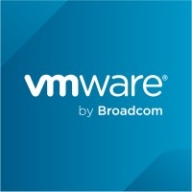


VMware Aria Automation and CloudBees compete in the enterprise IT automation and CI/CD space. VMware Aria Automation has the upper hand in infrastructure automation and integration capabilities, making it suitable for enterprises with complex needs. In contrast, CloudBees excels in CI/CD and Jenkins integration, ideal for development teams.
Features: VMware Aria Automation offers extensive customization options, strong integration with vRealize Suite, and rapid virtual machine provisioning. CloudBees provides seamless integration with Jenkins, deep pipeline orchestration, and robust collaboration capabilities.
Room for Improvement: VMware Aria Automation can improve third-party service integration, simplify its licensing model, and reduce complexity for new components. CloudBees could enhance setup simplicity, increase interface intuitiveness, and offer more reliable service, especially with legacy plugin management.
Ease of Deployment and Customer Service: VMware Aria Automation is mainly deployed on-premises with strong support but faces complex deployments. It has a robust community and professional support, with customer experiences varying. CloudBees allows flexible deployment in public and private clouds, with responsive support and community-driven resources, though integration complexity can be challenging.
Pricing and ROI: VMware Aria Automation has a costly license, delivering high value with its broad functionality, which suits large enterprises. CloudBees, while expensive, improves deployment efficiency and developer productivity, providing significant ROI in large-scale CI/CD environments.
Everything we've gained from it makes my job easier day after day, and I see value in it as an engineer.
Microsoft Intune not only saves costs by reducing the number of personnel needed but also offers a comprehensive solution for managing laptops, applications, security, individual access, and enrollment.
Importantly, when someone leaves the company, it helps protect document access on their devices.
When a support ticket is submitted, it directly reaches someone with Intune support expertise.
When I contacted Microsoft, they had the same expertise, if not more, which is phenomenal because I felt heard and my problem was solved.
Sometimes, the support provided is excellent, and the representative is knowledgeable, while other times, the service needs improvement.
We never had major issues to report or request support.
The scalability of Microsoft Intune is ten out of ten.
Ideally, we want to automatically segregate devices based on user properties like primary use, but currently, dynamic groups seem limited to device properties.
It supports organizations with 200 endpoints and those with more than 15,000 endpoints.
We have not experienced downtime, bugs, or glitches.
It appears Microsoft Intune undergoes changes without informing customers.
Microsoft Intune has been very stable.
Features like unlocking devices sometimes fail, and the support offered for other operating systems is insufficient.
There are communication issues, so you might start working with a feature without knowing if it will be deprecated six months from now.
Many third-party companies offer single-pane-of-glass reporting that shows you what your update environment looks like, how your patch is doing, application status, etc., but Intune's reporting is not intuitive.
It operates for both of my products, however, as a product, it is complicated to integrate and automate with other products.
Introductory professional services, like a fast-track service, were included with our E5 membership, and there have been no additional costs.
The Intune suite and add-ons, such as batch management and remote help, are costly.
It costs approximately forty euros per user per month.
Intune excels in configuration and compliance management for Windows 10, ensuring devices receive timely updates and adhere to organizational standards.
Dynamic groups allow us to set conditions for automatic membership, eliminating the need for user intervention or manual review and ensuring a seamless workflow.
Windows Autopatch is the most valuable because it removes the burden of patch management.
It helps us automate the workflow of creating many VMs and the TensorFlow key method.
We have strong regulations for maintaining compliance and mitigating risks with this product.
| Product | Market Share (%) |
|---|---|
| Microsoft Intune | 8.2% |
| VMware Aria Automation | 5.5% |
| CloudBees | 0.6% |
| Other | 85.7% |



| Company Size | Count |
|---|---|
| Small Business | 119 |
| Midsize Enterprise | 47 |
| Large Enterprise | 153 |
| Company Size | Count |
|---|---|
| Small Business | 1 |
| Midsize Enterprise | 3 |
| Large Enterprise | 17 |
| Company Size | Count |
|---|---|
| Small Business | 32 |
| Midsize Enterprise | 24 |
| Large Enterprise | 130 |
Microsoft Intune provides centralized management of mobile devices and applications, ensuring security, compliance, and productivity through integration with Microsoft services like Microsoft 365 and Azure Active Directory.
Organizations use Intune for managing mobile devices and applications, enhancing security and compliance across platforms. With features like single sign-on, conditional access, and zero-touch deployment via Autopilot, it facilitates efficient operations. Intune's scalability, easy enrollment, and capabilities such as remote wipe support diverse device management, offering robust data protection and efficient operation. Despite its features, improvement areas include reporting, compatibility with non-Microsoft devices, and better support for macOS and Linux devices.
What are the key features of Microsoft Intune?
What benefits should users look for in reviews?
In industries such as finance, healthcare, and education, Microsoft Intune is implemented to ensure secure and compliant device management. Companies leverage its capabilities to deploy security policies and manage both corporate-owned and BYOD environments, facilitating a unified approach to data protection and compliance.
CloudBees provides a highly scalable and secure platform that supports seamless integration and automation across multiple environments. It excels in managing Jenkins instances and offers flexible deployment options, enhancing efficiency for large teams.
CloudBees is recognized for its integration with Jenkins, SonarQube, and Ansible, allowing companies to leverage its robust automation capabilities for continuous integration and deployment. With its strong support for Docker and Kubernetes, teams benefit from streamlined code management and operational efficiency. Its scalable architecture, real-time feedback, and premium vendor support help manage large-scale applications and microservices. Despite its strengths, users report challenges with pipeline setup, service availability, and GUI accessibility, which suggest room for improvement in these areas.
What are the key features of CloudBees?
What benefits should users expect in reviews?
In tech and software industries, companies implement CloudBees for managing complex CI/CD pipelines. Its integration with DevOps tools facilitates automation and workflow optimization. Industries with large teams managing thousands of microservices use CloudBees to maintain high availability, streamline processes, and ensure security compliance, driving efficient production workflows.
VMware Aria Automation is a cloud management tool that allows companies to simplify their cloud experience through a modern automation platform. The solution is designed to deliver self-service clouds, multi-cloud automation with governance, and DevOps-based security and infrastructure management. It helps organizations improve IT agility, efficiency, and productivity through its various features.
VMware Aria Automation has multiple use cases that include the following:
VMware Aria Automation Features
VMware Aria Automation has various features that allow users to easily perform operations. Some of the solution's capacities include:
VMware Aria Automation Benefits
VMware Aria Automation offers its users various benefits. Some of the biggest advantages that the solution brings to companies that utilize it include:
Reviews from Real Users
Awais J., CTO/CEO at a tech services company, likes VMware Aria Automation because it saves a lot of time, provides more visibility, and has extensive automation capabilities.
An IT consultant at a government rates VMware Aria Automation highly because the product gives you flexibility to analyze and consume resources.
We monitor all Configuration Management reviews to prevent fraudulent reviews and keep review quality high. We do not post reviews by company employees or direct competitors. We validate each review for authenticity via cross-reference with LinkedIn, and personal follow-up with the reviewer when necessary.